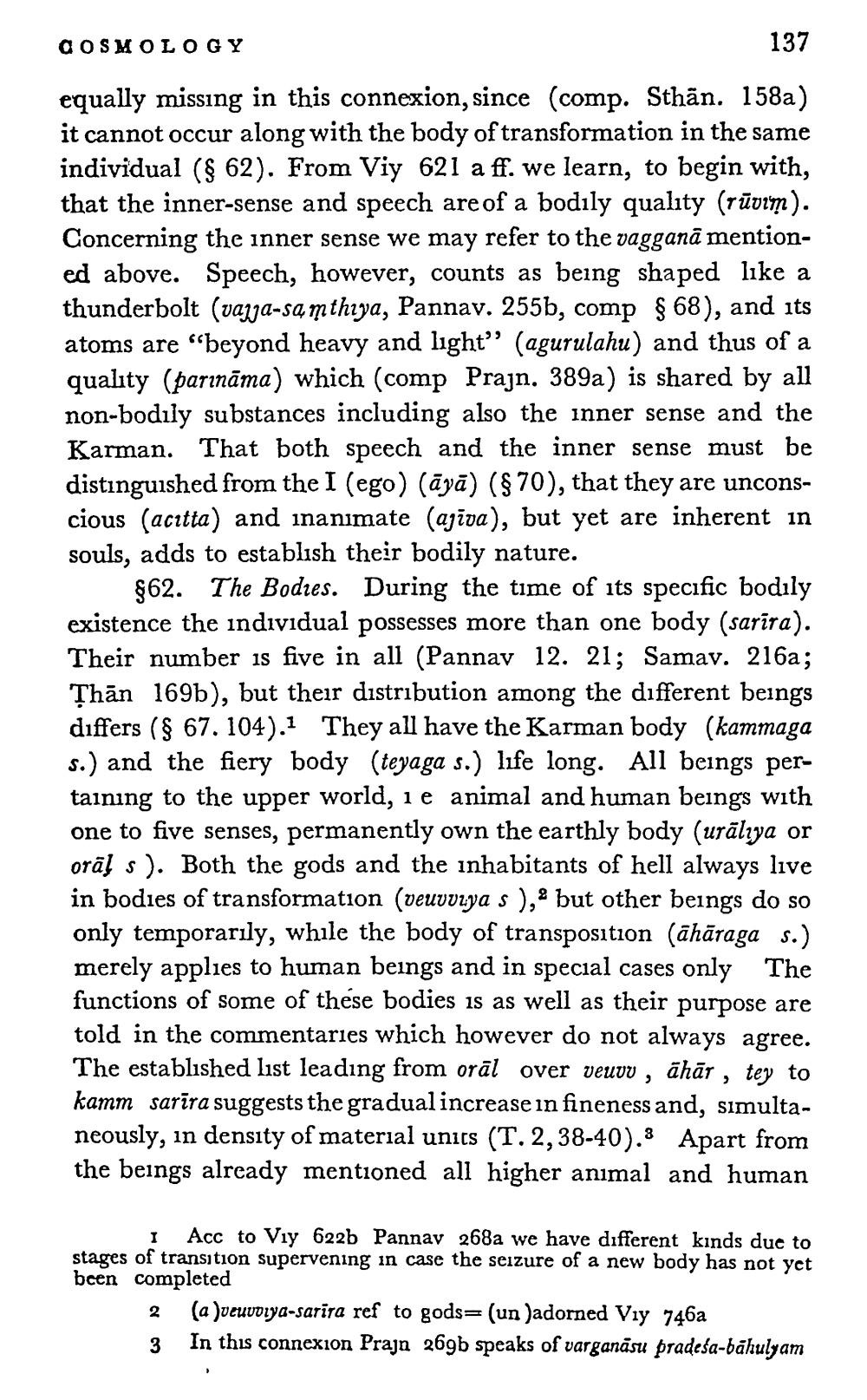________________
137
equally missing in this connexion, since (comp. Sthan. 158a) it cannot occur along with the body of transformation in the same individual (§ 62). From Viy 621 a ff. we learn, to begin with, that the inner-sense and speech are of a bodily quality (rūvim). Concerning the inner sense we may refer to the vagganā mentioned above. Speech, however, counts as being shaped like a thunderbolt (vaja-samthiya, Pannav. 255b, comp § 68), and its atoms are "beyond heavy and light" (agurulahu) and thus of a quality (parināma) which (comp Prajn. 389a) is shared by all non-bodily substances including also the inner sense and the Karman. That both speech and the inner sense must be distinguished from the I (ego) (āyā) (§70), that they are unconscious (acitta) and inanimate (ajiva), but yet are inherent in souls, adds to establish their bodily nature.
COSMOLOGY
§62. The Bodies. During the time of its specific bodily existence the individual possesses more than one body (sarīra). Their number is five in all (Pannav 12. 21; Samav. 216a; Than 169b), but their distribution among the different beings differs (§ 67. 104).1 They all have the Karman body (kammaga s.) and the fiery body (teyaga s.) life long. All beings pertaining to the upper world, 1 e animal and human beings with one to five senses, permanently own the earthly body (urāliya or oral s). Both the gods and the inhabitants of hell always live in bodies of transformation (veuvviya s ), but other beings do so only temporarily, while the body of transposition (āhāraga s.) merely applies to human beings and in special cases only The functions of some of these bodies is as well as their purpose are told in the commentaries which however do not always agree. The established list leading from oral over veuvv, āhār, tey to kamm sarira suggests the gradual increase in fineness and, simultaneously, in density of material units (T. 2, 38-40). Apart from the beings already mentioned all higher animal and human
8
I Acc to Viу 622b Pannav 268a we have different kinds due to stages of transition supervening in case the seizure of a new body has not yet been completed
2
3
(a)veuvoiya-sarira ref to gods= (un)adorned Viy 746a
In this connexion Prajn 269b speaks of varganāsu pradeśa-bāhulyam




